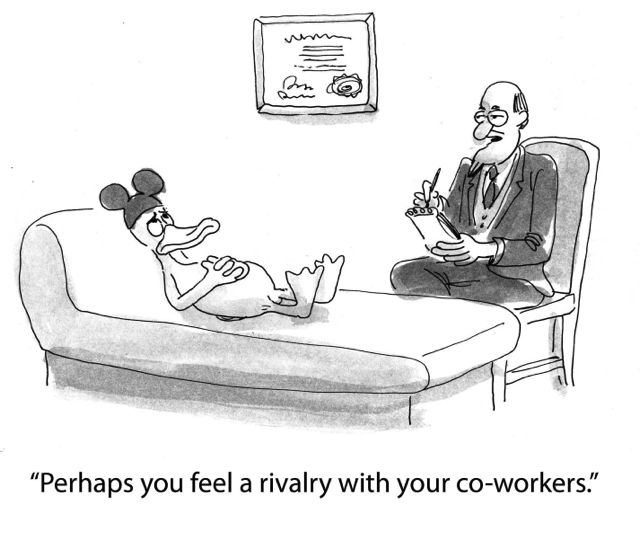What’s more important? Culture fit or experience?
If human resources management is seen as a science, why are two very unscientific criteria behind most hiring decisions? Tradition and gut feelings often play roles in the selection process. If you’ve been working on your company’s cultural foundation, it’s easy to dismiss these two checkboxes in favor of more forward-looking preferences.
You won’t be alone. The trend is moving away from old-school job qualifications and toward those that are more organic and more suited to the changing nature of work design. Let’s face it: shorter job tenures and more project-based positions have devalued years of experience and even changed the definition of experience itself. Today, culture, not the old-fashioned job description, represents the more enduring yardstick.
Tradition Won’t Work in the Future
At many businesses, HR looks to fill open positions in the way the department knows best: “how we’ve always done it.” What worked before, though, will soon be a ticket to the bottom of the talent heap.
Suppose you’ve always required a certain number of years’ experience in the same field—let’s say that’s five years of handling billing issues in a doctor’s office. Maybe you add a specific computer program to the job description. Now consider how this limits your applicant pool.
Recent Bureau of Labor stats put average employee tenure at 4.4 years, with evidence that that is shrinking. Lots of candidates won’t make your five-year cut. Those who do might bill for dentists or other comparable employers but won’t have doctor’s office experience. And specific computer programs? Those change with the seasons these days.
Okay: suppose you trash those requirements. Given increasing automation in billing, your new hire might be obsolete soon anyway. You need to be thinking about what else that person can bring to your organization.
Gut Checks Are Fleeting—Potential and Values Are Evergreen
Maybe an attractive candidate makes it to the interview lightning round and you decide to go with your gut about how that person strikes you. You may be intuitive, but your feelings and first impressions are subjective. They shouldn’t seal what may be a years-long deal. You’ll need a more systematic, scientific means of making a final selection.
Let’s return to your company’s culture and how this person might fit in. A productive culture is based on a shared mission, vision, and set of values. Everyone rowing together puts your business ahead. Of course, it’s one thing to believe in these concepts and another to have the chops to further them.
This is where personality and skills testing come in. Potential is the new black. Like a little black dress, the capacity to do whatever new things a job role might require in the future embodies flexibility. Potential goes with everything. This catapults the value of your new hire in your company’s five-year plan. Even if that person doesn’t stay with you for five straight years, they may drift in and out as projects require.
That makes your business agile, with hiring practices that are evergreen. Screen for the competence to learn and try new things. Screen for a personality that jibes with your unique cultural values. Once you get as scientific as you can about these traits, then you can use your subjective assessment to narrow the field. When you hire for ability and ethics, your gut check becomes a valid deciding factor.
Authors
Chris Dyer
Chris Dyer is a recognized performance expert. Constantly intrigued by what makes some businesses and individuals more successful than others, Chris has dedicated years of research to uncovering what drives productivity and profits. As a sought-after speaker and consultant, Chris works with leading organizations to help them transform their cultures to boost performance and gain an even greater edge in the marketplace. A certified SCRUM Master, Chris is highly adept at helping teams work through obstacles and find solutions quickly and effectively. He leverages this experience in all aspects of his work. Chris is the author of The Power of Company Culture, which was released in 2018. He is also the Founder and CEO of PeopleG2, a background check company that has appeared on the Inc. 5000 list of the Fastest Growing Companies. A passionate talent management enthusiast, Chris is the host of TalentTalk, a popular business podcast that features interviews with top executives about their strategies for hiring and promoting talent. Chris strongly believes in community involvement, and he is active with a number of organizations. He regularly serves as a judge at entrepreneurial showcases and contests, such as Miller Lite Tap the Future. Additionally, he runs two book clubs for Senior Level and HR Professionals in Southern California. Chris also serves on the board of Working Wardrobes, a non-profit organization that empowers people who are overcoming difficult challenges, such as abuse or homelessness, to confidently enter the workforce and achieve self-sufficiency. In his free time, Chris enjoys traveling with his wife and kids and playing live music with his band. He resides in Orange County, California.
Recruit Smarter
Weekly news and industry insights delivered straight to your inbox.







